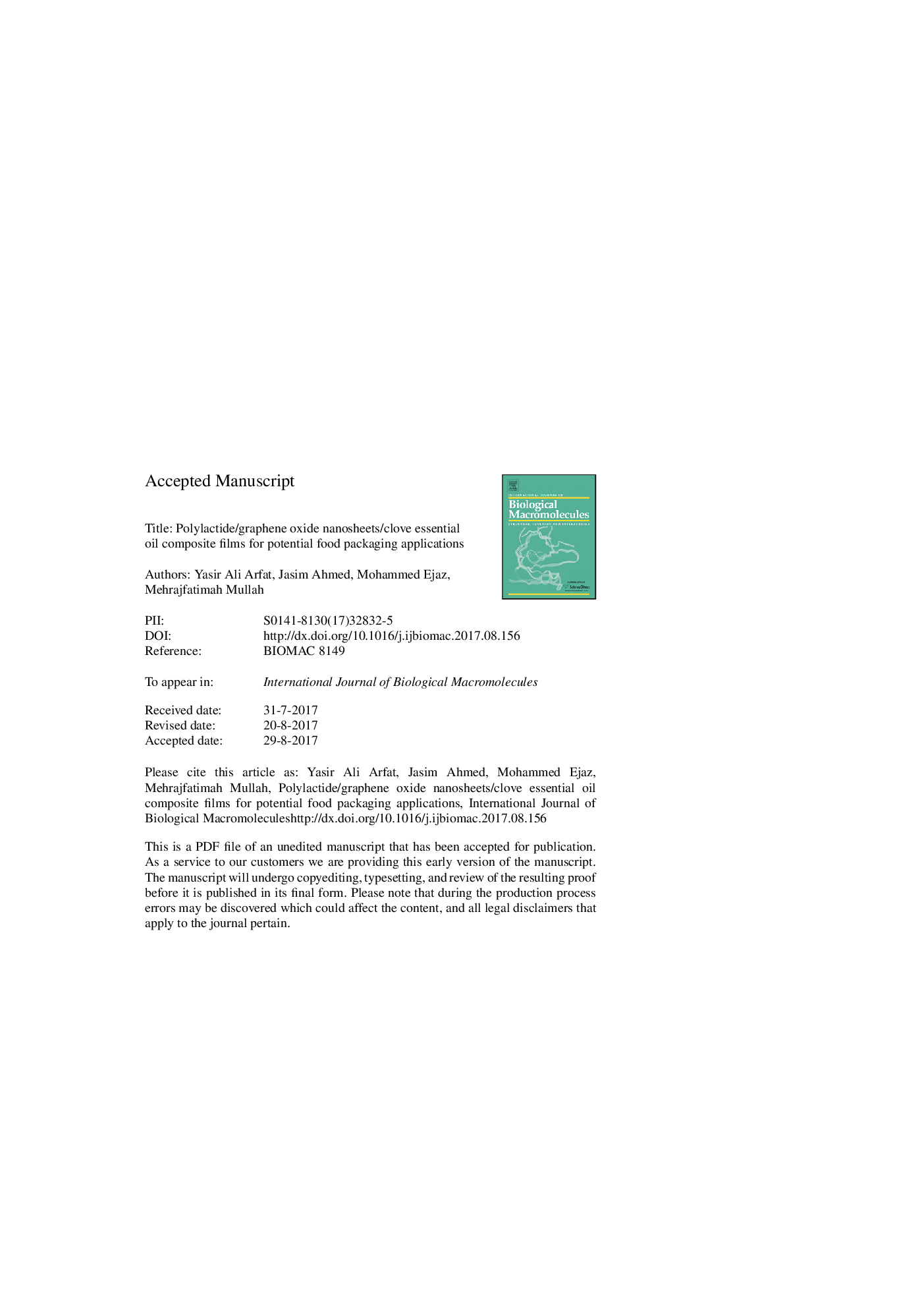| Article ID | Journal | Published Year | Pages | File Type |
|---|---|---|---|---|
| 8328818 | International Journal of Biological Macromolecules | 2018 | 29 Pages |
Abstract
Antimicrobial nanopackaging films were developed by incorporating clove essential oil (CLO) (15-30% w/w) and graphene oxide (GO) nanosheets (1% w/w) into polylactide (PLA), suitable for use as food packaging, via solution casting. Addition of CLO into PLA matrix improved the flexibility of the composite films by lowering tensile stress, complex viscosity (η*), and glass transition temperature (Tg). GO improved the Tg, η* and lowered the oxygen permeability of the plasticized PLA matrix. Optical and anti-UV properties of the film were influenced by both GO and CLO incorporation. FTIR spectra exhibited a change in the molecular organization of the plasticized PLA film after incorporation with CLO. Microstructural studies revealed that the reinforcement of GO prevented porosity of plasticized PLA/CLO film surface. The developed composite film showed excellent antibacterial activity against Staphylococcus aureus and Escherichia coli and therefore, has a potential to be used as active packaging material for food safety and preservation.
Keywords
Related Topics
Life Sciences
Biochemistry, Genetics and Molecular Biology
Biochemistry
Authors
Yasir Ali Arfat, Jasim Ahmed, Mohammed Ejaz, Mehrajfatimah Mullah,
